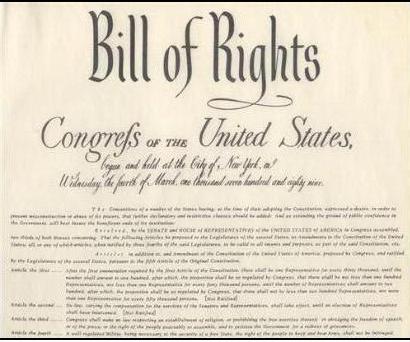At WiseGEEK, we're committed to delivering accurate, trustworthy information. Our expert-authored content is rigorously fact-checked and sourced from credible authorities. Discover how we uphold the highest standards in providing you with reliable knowledge.
What is the Due Process Clause?
The due process clause of the fifth and 14th amendments of the United States Constitution prohibits the government from depriving its citizens of the right to liberty and property without a fair legal process or laws. Fairness standards have been developed in federal and state laws in accordance with these amendments. For example, criminal defendants must be given adequate notice of the charges brought against them as part of the due process clause so that defendants can formulate legal defenses. The jurisdiction, or location where the case is to be heard, is also important and can present an undue hardship to a defendant. Continuing the case could be a violation of the due process clause.
When courts deprive defendants of fair treatment in any manner, they violate the defendant’s rights to due process. The fifth and 14th amendments state nearly identical language concerning due process. The fifth amendment binds the federal government to the due process clause. All states are obligated to adhere to the due process clause under the 14th amendment to the U.S. Constitution. The states and the federal government are responsible for creating laws and standards that comply. If not, defendants can often appeal their cases to the United States Supreme Court.

Protection under the due process clause is protection against unfair treatment by the federal or state government. It’s not often used in cases among private parties. Due process also refers to cases, and it is often not applicable to opposing laws that are enacted. There has to be an underlying case, and the court must rule based on the facts of the specific case before it.
The due process clause is often divided into two requirements: procedural due process and substantial due process requirements. In general, due process is concerned with procedures and ensuring that federal and state procedures do not unfairly rob an individual of his or her rights to life, liberty, or property. Substantial due process requirements necessitate that laws applied to adjudicating a case do not deprive an individual of his or her liberty. That is, the laws of the government cannot unreasonably interfere with a fundamental right or human right. Some of the cases brought under the substantial due process requirements include mandatory working hours for a certain group of industry workers and cases about economic regulations and social programs.
AS FEATURED ON:
AS FEATURED ON:











Discuss this Article
Post your comments